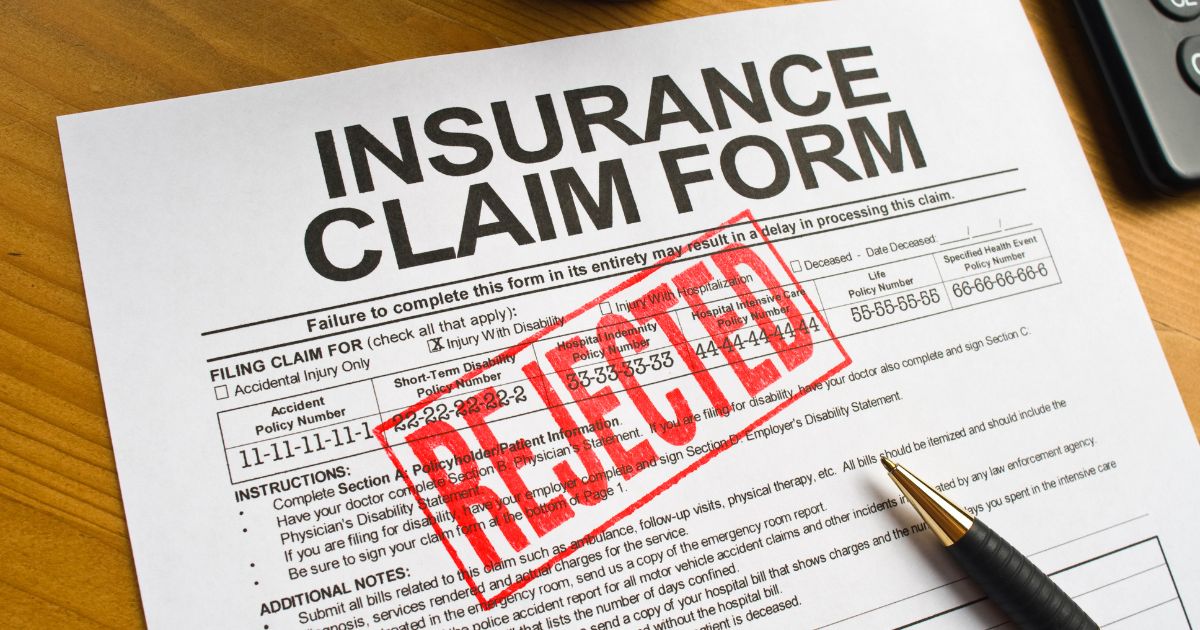Navigating the aftermath of a rejected insurance claim can feel overwhelmingly complex and frustrating. After all, you’ve invested time and resources into securing coverage, only to face an unexpected denial when you need it most.
Whether your claim was dismissed due to alleged policy violations, insufficient documentation, or misinterpretations of the facts, it’s crucial to understand what options lie before you. This article aims to shed light on your rights and the next steps you can take, from filing an appeal to seeking external assistance.
By arming yourself with knowledge, you’ll be better equipped to advocate for your interests and potentially turn the situation in your favor. Remember, a denied claim doesnt have to be the end of the line; it may just be the beginning of a determined pursuit for the protection you deserve.
Common Reasons for Claim Denial

Insurance claims can be denied for a multitude of reasons, often leaving policyholders feeling bewildered and frustrated. One common pitfall stems from insufficient documentation; insurers require a robust array of evidence to substantiate a claim, and a lack thereof can lead to rejection.
Similarly, errors in the policyholders application or discrepancies in the details provided, such as dates or medical records, can trigger an automatic denial. Furthermore, some claims are denied due to policy exclusions.
For instance, if a specific incident or condition falls outside the bounds of what the policy covers, the insurer may refuse to pay. Additionally, exceeding the time limit for filing a claim can also result in denial, as insurers are stringent about deadlines, leaving little room for forgiveness.
Understanding these potential missteps is crucial; after all, knowledge empowers you to navigate the often-chaotic landscape of insurance claims more effectively.
Your Rights as a Policyholder

As a policyholder, you are entitled to a range of rights designed to protect your interests, especially when your claim has been denied. First and foremost, you have the right to receive a clear and comprehensible explanation for the rejection; insurers must provide detailed reasons backed by the policys terms and conditions.
If you disagree with their assessment, you possess the option to appeal the decision, a process that allows you to present additional evidence or clarify any misunderstandings. Beyond that, you should be aware of the right to seek assistance from your state’s insurance department, which can offer guidance and mediate disputes.
In extreme cases, you have the right to pursue legal action; this can feel daunting, but its a vital option when all else fails. Remember, staying informed and proactive about your rights can significantly impact the outcome of your situation.
Steps to Take After a Claim Rejection
After a claim rejection, its crucial to take decisive and informed steps to navigate the next phase of your insurance journey. First, begin by carefully reviewing the denial letter; it often holds key insights into why your claim was rejected.
Was it due to insufficient documentation, a lapse in coverage, or a misunderstanding of your policy’s terms? Next, gather all relevant documents that support your case—think photographs, receipts, or any prior correspondence with the insurer. Armed with this information, reach out to your insurance company for clarification, and don’t hesitate to ask pointed questions.
Being persistent yet polite can sometimes lead to a reconsideration of your claim. If discussions fail to yield results, consider filing a formal appeal or even enlisting the help of a professional, like an attorney or claims advocate, who specializes in insurance matters.
Remember, each denial is not the end; its merely a momentary setback, and knowing your rights can empower you to challenge the decision effectively.
Conclusion

In conclusion, navigating the complexities of a rejected insurance claim can be daunting, but knowing your rights and options can empower you to take the necessary steps toward resolution. Whether it involves appealing the decision, seeking clarification on the insurers rationale, or exploring alternative avenues such as filing a complaint with a regulatory body, understanding the processes at your disposal is crucial.
For those facing a rejected TPD claim, its essential to consider consulting with legal or financial professionals who specialize in insurance matters, as they can provide valuable guidance tailored to your specific situation. Ultimately, being proactive and informed can significantly enhance your chances of obtaining the coverage and support you are entitled to.


